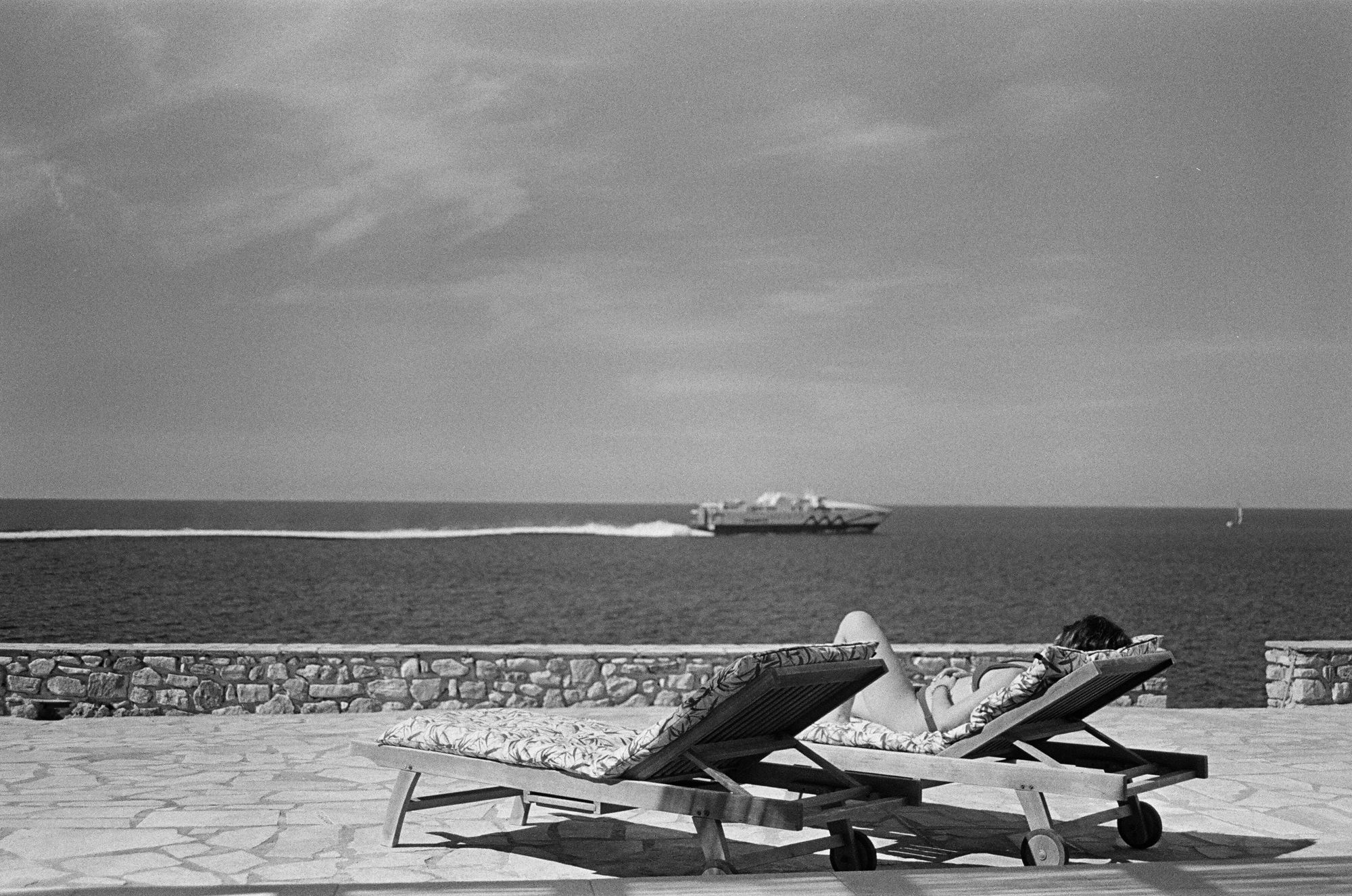Olive Oil in a Bottle
So I stepped carefully into the men’s locker room where I changed into the “disposable underwear”
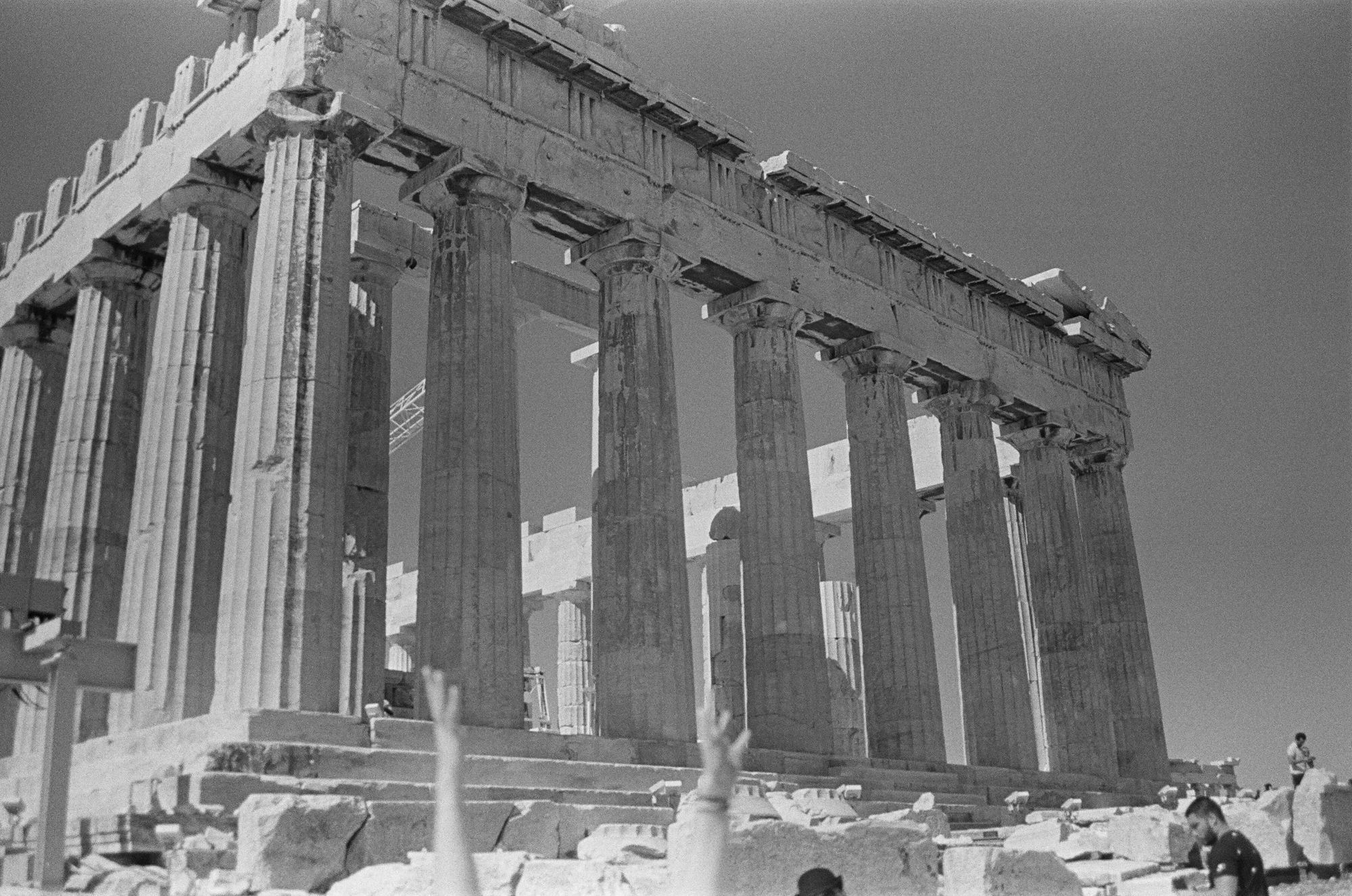
I didn’t take detailed notes at the time, but Greece was probably one of the first eight or nine places I knew about. If I had to guess, the list went roughly: New York, New Jersey, America writ large, Bikini Bottom, England, The 100 Acre Wood, Egypt, and then Greece. Growing up in the west, learning at schools decorated with scattered marble heads and busts, it’s weird how early Ancient Greece came into the conversation. Homer Simpson may have been more immediately familiar to me than Homer the bard, but by third grade somebody had told me about the Trojan war.
This mild fascination persisted for some time. In or around sixth grade, during computer class, we were tasked with planning a trip to a foreign country, planning out our meals and lodging, following a strict budget, and tracking it all in an Excel spreadsheet. Before trip advisor, we looked joints up in Fodor’s and took them at their word.
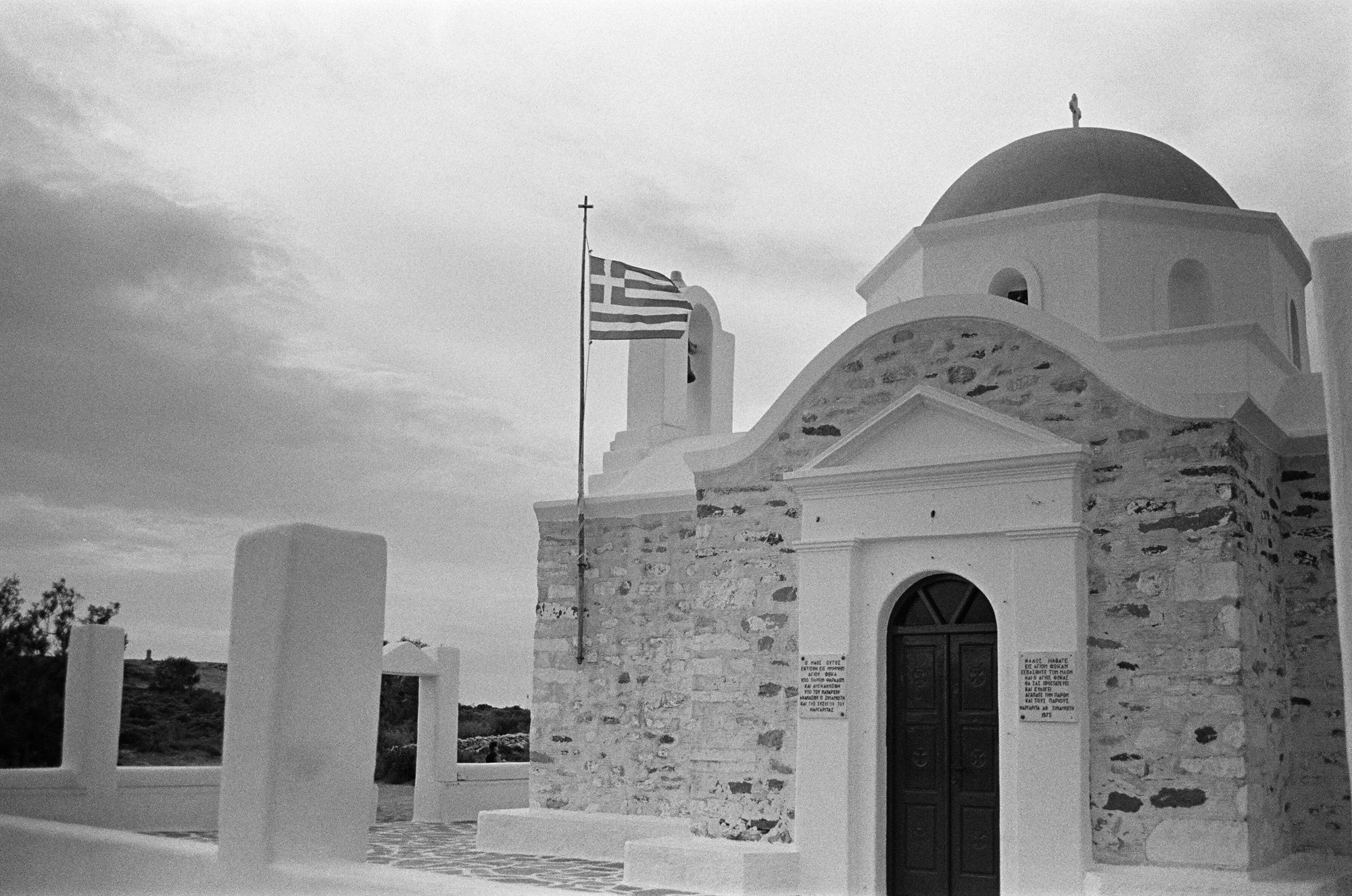
This culminated in a PowerPoint presentation. The trip I planned took some 18 years to materialize, but the planning process today was if anything more haphazard. In the interim, however, my family did get a lot of mileage about a series of gaps in the work. I set up a whole Odyssey of ferries to get my imaginary self to Rhodes, to see the colossus, which collapsed in 226 BC. It only stood for 54 years. A blink of the eye considering the 2000-odd years of visitors who have stood in front of the Parthenon, put their hands on their hips, tilted their heads, and said “huh.”
A series of events led to me standing atop the Acropolis two weeks ago, taking photos with Emily, my girlfriend, there in Athens, the birthplace of Democracy and the band R.E.M. In front of the Parthenon, I put my hands on my hips, tilted my head, and said “huh.”
Though the reviews on Athens are mixed, we rather enjoyed ourselves. Winding streets, hills, souvenir stores, a couple museums, urban decay, and a robust breakfast buffet at the hotel at Syntagma opposite the parliament all were welcomed as invited guests.
The souvenir stores, I should mention, are a cut above those in places like Toledo or Pisa or presumably Dubrovnik. Two days of scouring the town, and I saw just one place selling lewd tee shirts with slogans like “Rules for dating my daughter.” Instead they featured the faux marble busts, the knockoff urns, the cups of Pythagoras, beach rug towels, and metal laurel headbands. Also, phallic bottle openers, which I had never seen anywhere else. The sidewalks were slippery, covered as they were in marble, which I guess is just their local garbage in this part of the world. How much a dump could a place with marble sidewalks be?
The Parthenon doesn’t get that bad a review, but it certainly doesn’t benefit from the absence of the Elgin Marbles and what appears to be a permanent state of under construction.
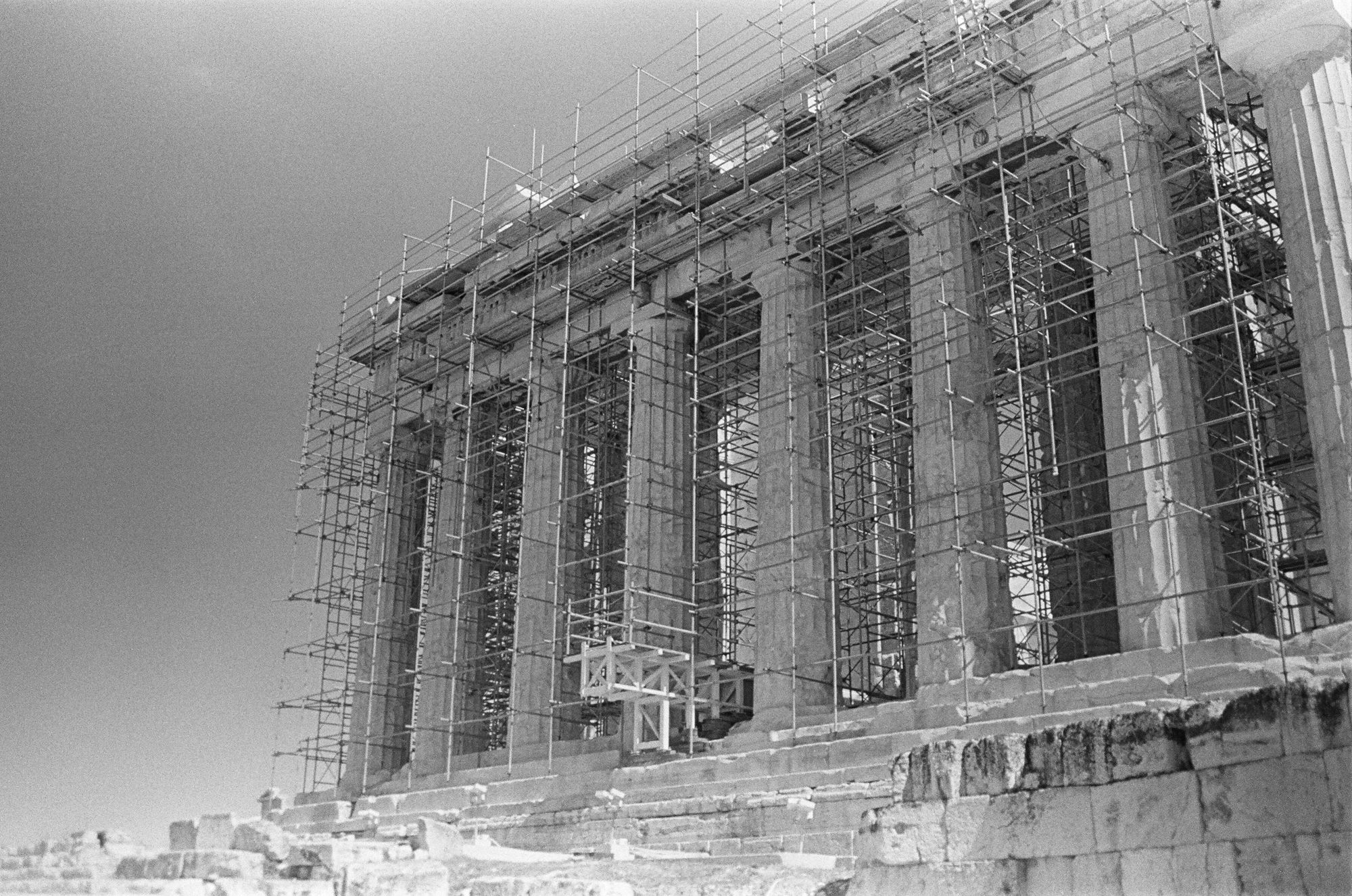
Ruins dot the town, and a few buildings, including the Acropolis Museum, are cleverly built on stilts above dig sites. The more exciting pieces in that museum included some Mycenaean bronze artifacts or some rebuilt urns, as even most of the famous sculptures are thought to be Roman copies, not dating from Classical Athens, though still dating from Antiquity.
Only at the end of the week, when we returned to town on the way home, did we manage to spot a couple original classical bronzes in the National Archaeological Museum, a place home to like a lot of pigeons. Several employees yelled at us for opaque reasons, and the toilets there had no seats, but original bronzes are hard to find!
Looking exclusively at Greek artifacts gives the casual observer a vague, Weimary sense of dealing only with a preamble. The fact of the matter is the Athenian Golden Age was brief, and while it cast a long shadow, it really was geographically and temporally concentrated. There was Pericles, and that’s great, and we can debate whether Socrates and Plato’s gifts to western thought ever hindered it. All of this is wonderfully important, but it’s frankly not as much to look at as one might think.
Archimedes lived elsewhere. Aristotle went off to tutor Alexander in Macedonia, on the edge of the oikoumene, and Pythagoras lived down in the south and was crazy. In a certain sense, Athens in its Golden Age is just 18th century Boston.
The place became a tourist attraction within a few hundred years of its apex, and it’s been, like Bruges or Bath, one of those peculiar European cities that’s less different than Vail, CO than one might like to believe. As soon as Alexandria rose to prominence, Aristotle’s Lyceum faded. Unlike Harvard, however, I couldn’t find a “Lyceum State” novelty tee shirt anywhere.
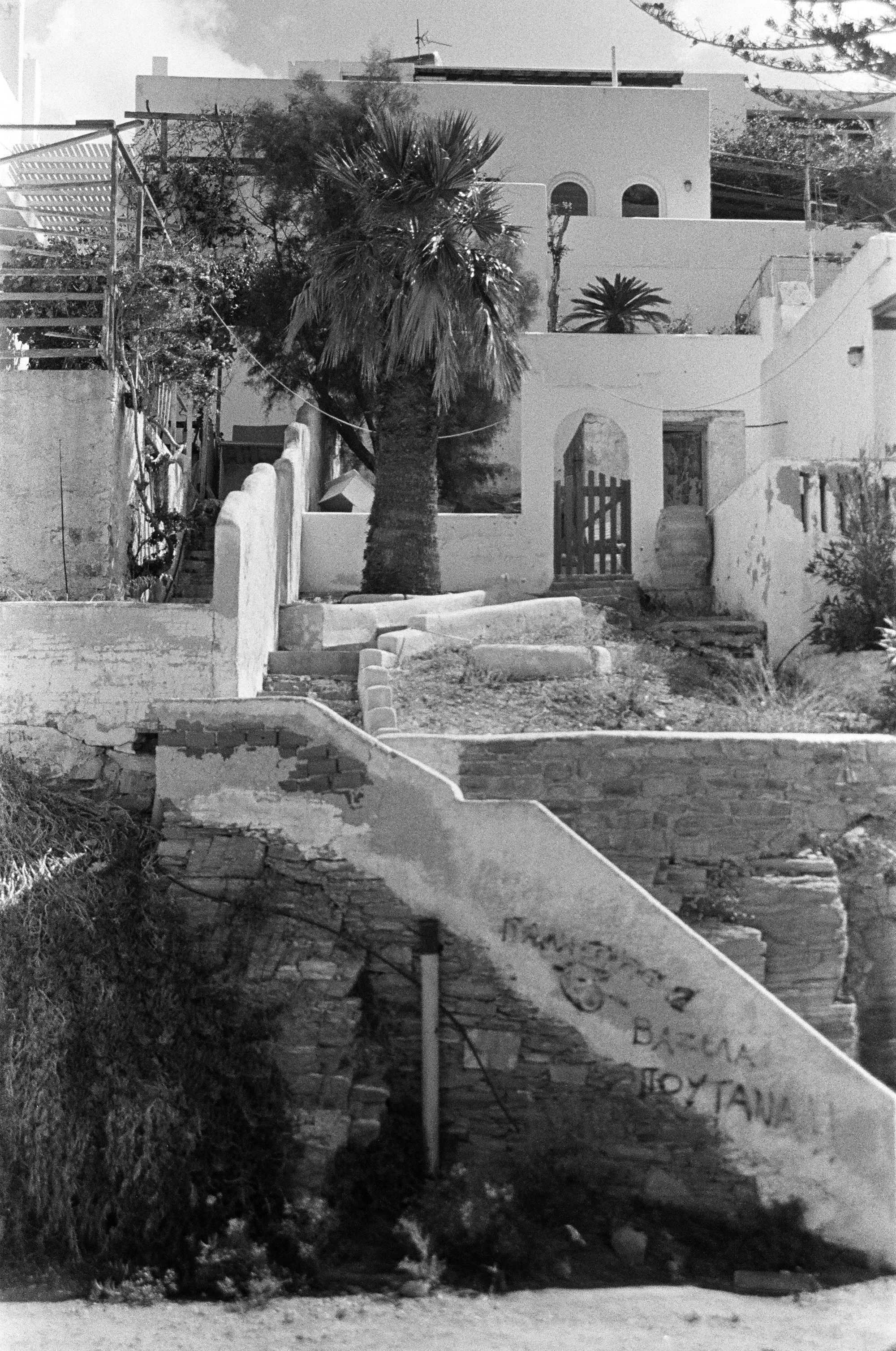
Indeed, everybody’s favorite thing from Athens happens to be one of the (anecdotally) most commonly cited examples of an abstract noun: Democracy. So the central question becomes: what is the best way to travel somewhere that the legacy is more about stories than things?
The battle of marathon, Oedipus, and Archimedes’ bathtub eureka moment are all familiar enough. Due to misguided Ottoman powder storage practices and British arrogance, the Parthenon has been reduced to a scaffolding of columns, impressive, but themselves covered in scaffolding, lacking their detail, standing to remind us what once was and ask us to fill in the gaps. Reading about the parthenon, we can imagine Pericles admiring his handiwork in technicolor, but in reality it’s a black-and-white silent film.
For the stories of Theseus and the Minotaur, Perseus and the Gorgon, or the tasks of Hercules, we have no gaps to fill in. We can imagine the bull in the center of the labyrinth, the dangling head of medusa, or Heracles covered in shit, cleaning the Augean stables.
Even the historical legacy exists shrouded in myth, myths enhanced by contemporary historians like Thucydides, whose History of the Peloponnesian War incorporates an allegedly verbatim transcript of Pericles’ funeral oration, which he didn’t witness and I am all but certain no intern transcribed live. The historians, you see, took some liberties.
It therefore might not make sense to go to the place looking for evidence. Instead, it might be wiser to show up and do what they did: eat grapes, eat olives, get on a boat, look at the stars, and make some stories up. They’re not sure if the Trojan War ever happened, but, like, who cares.
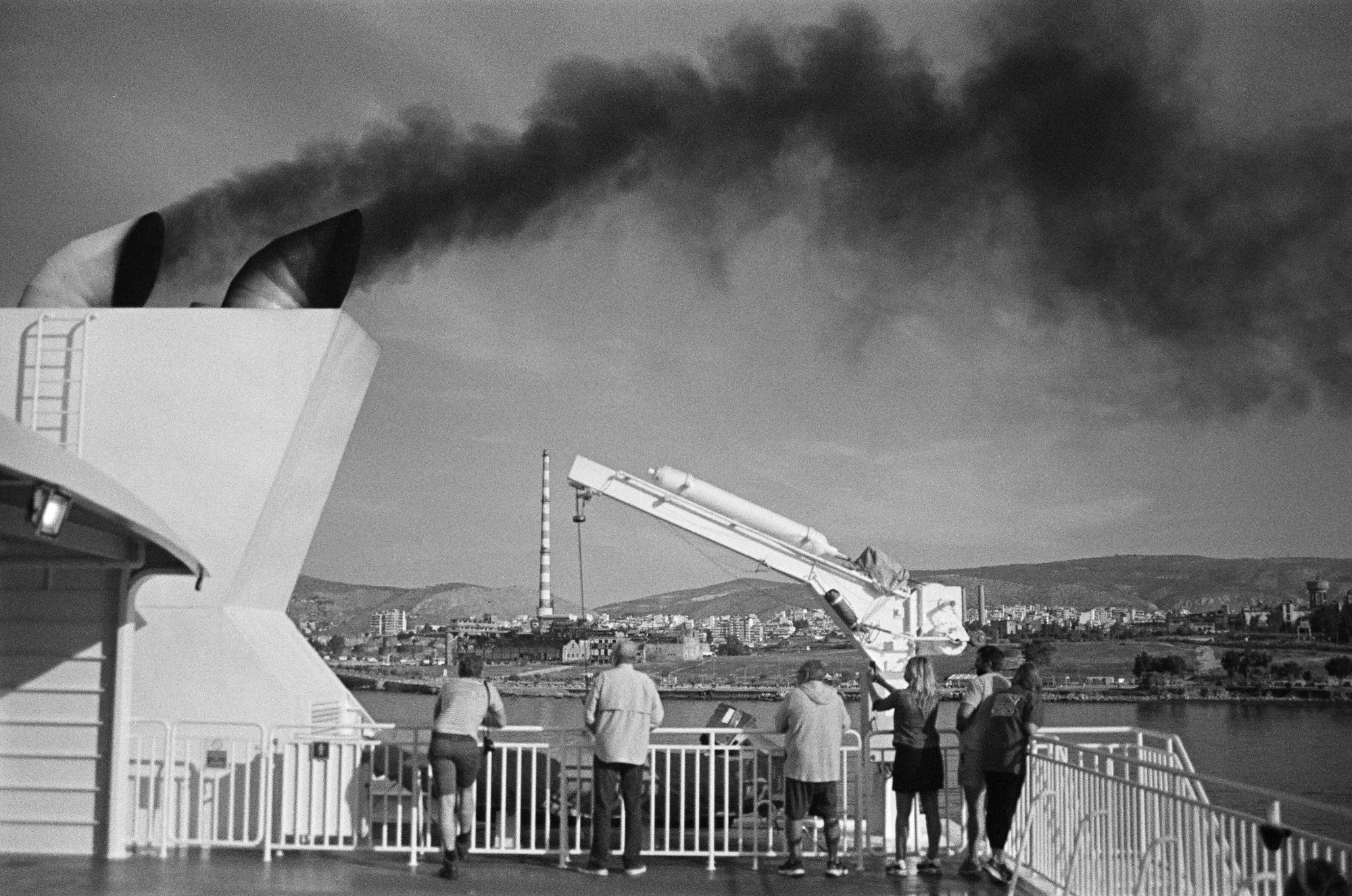
So we left Athens after a day and a half on the morning ferry down to the island of Paros, home to the marble in which some sculptor uncovered the Venus de Milo, among other renown Roman copies of lost bronzes.
We booked passage on Blue Star Ferries and were ushered aboard a Hellenic Seaways boat without the slightest confusion. While Emily slept, I googled “Blue Star Ferry Disaster,” but receive no meaningful results. We passed some islands, and I looked out at the Wine Dark Sea and thought of Odysseus.
The rocky archipelago gives life to the term “desert island.” It’s pretty easy to imagine the world of hurt any mariners would be in if they, lulled by the sounds of sirens, crashed and found themselves stranded. Not a lot of trees, but plenty of peculiarly placed churches.
Arriving in Paros, we found ourselves staying at a little place off on the peninsula to the northeast of Parikia, the port town on the island. The hosts left us two luxurious bunches of grapes, so we took turns playing emperor, reclining on lounge chairs, eating grapes dangled by the other. This, I have to say, is living. With a great view of the sunset, nobody else around, the only thing we wanted for was towel hooks in the bathroom.
That night, as we decompressed from a jerky drive up steep, dirt road hills, we looked up at the stars. I ignored the aftertaste from my third attempt at liking olives and pondered the far-off suns.
It was, after all, people on these islands who named those stars. It was these people who proposed the atom, came up with stories of constellations, and probably started to use them to navigate themselves about that wine dark sea, with inconsistent levels of success. As we drove our Skoda Citigo around the island, stalling up the hills, I felt grateful for Emily’s navigational talent, due no doubt to her deep familiarity with the constellations and their various positions.
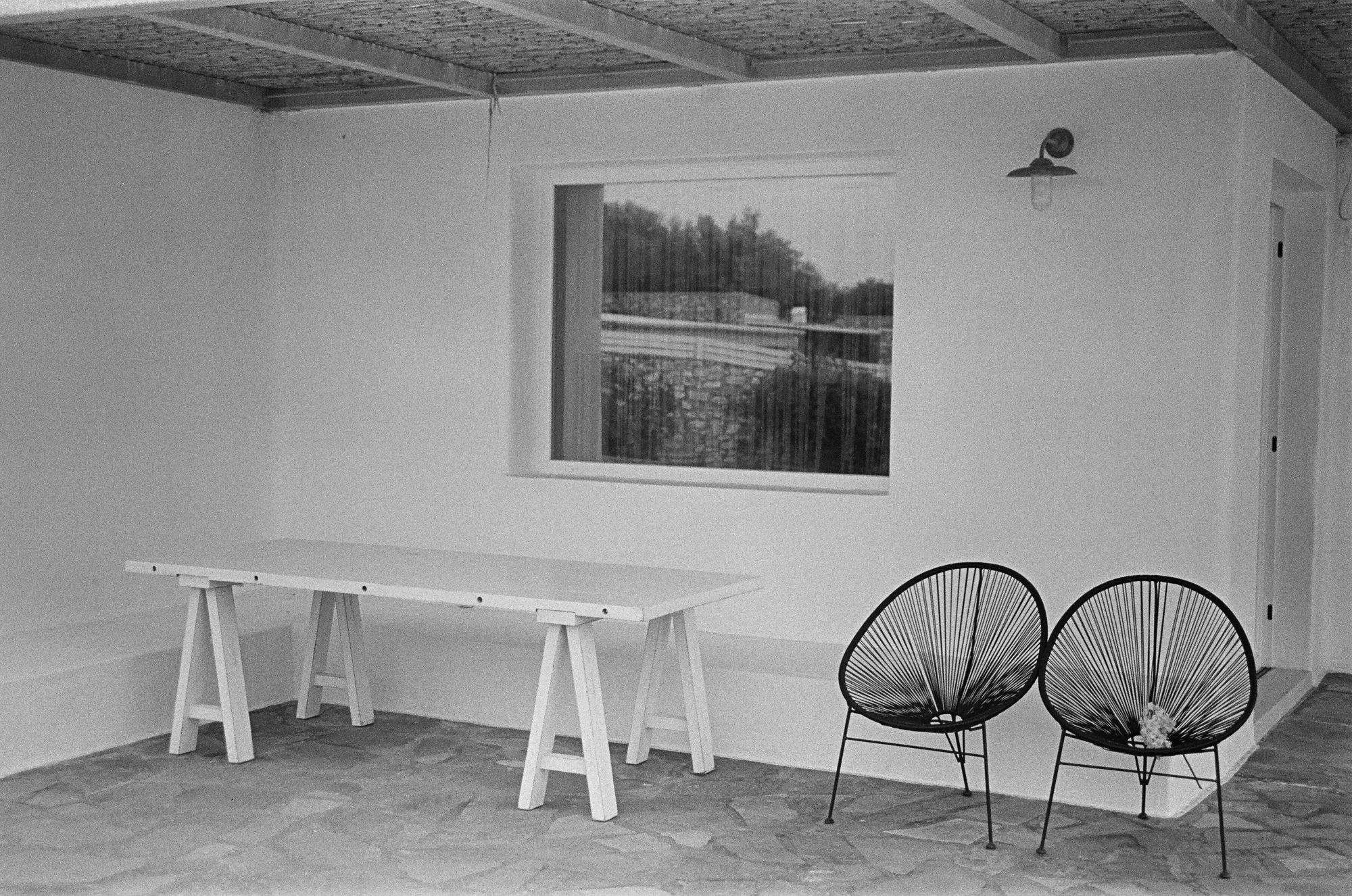
After a night out here at the end of the world, we headed over to Naousa, the fun town part of the island. It’s not exactly Mykonos, but there’s definitely a bit more life there. Emily took the lead on doing research, and we found ourselves short-term regulars at a bar named Kosmos, where the bartender was one of those strangers I keep seeing who keep winking at me, as if to say, yes, you’re imagining this. I suppose he was just noticing Emily and me dancing, and wanted to say “I know it’s not your honeymoon.” Like the best places, there was a buzz outside, excellent cocktails and people dancing around the bar, making do without a dance floor per se.
At Kosmos, we struck the right balance. Out and about, participating in nightlife, we did more than the drive-by one does with family but less than the bender one might do with friends. The place wasn’t space or star themed, but I think the name came from the sense of rightness we felt there. The Cosmos is all that is or was or ever will be, and the bars in town were too. A breakfast place we stopped by moonlit as a less danceable rival cocktail lounge, open from 9 til the other 5.
Traveling with Emily, it was pretty easy to arrive at some ongoing bits and stories. More than a few of them came from our evening activity the second night in Athens, a Hammam massage. A close and loyal reader may have noticed that not too many of my anecdotes involve being touched by strangers. Emily, to her credit, is sane enough to enjoy a calming massage. I tend to recoil at a stranger’s contact.
In New York, a Hammam, which consists of a steam bath, an exfoliating massage, a soapy massage, a rinse, and perhaps some other bits and bobs, will set you back a pretty penny. In Athens, they’re a great deal, and I can’t say no to a great deal.
So, our second evening in Athens, we ate a quick dinner and shuffled over to a spa for a Hammam. Some alarm bells started to go off when we were escorted into the back, and they pointed at a pair of five-inch long wooden sandals and said that “the bigger pair is for the man.” They were that kind which is slightly elevated, on two thin wooden slats, and which are highly slippery on wet or moist tiled floors. The same floors one might expect to find in a steamy spa.
So I stepped carefully into the men’s locker room where I changed into the “disposable underwear”—a strip of stretchy material to go around the waist, while the rest was covered by a black strip of that cloth that makes up the nice kind of disposable napkins.
Having locked my clothing and dignity in a small locker, I shuffled out with a towel wrapped around myself. A burly man pointed me to the massage room, where he handed me a brass bowl and pointed to the sink and marble bed where I could sit and hand-bathe. Luckily, the room was so steamy that all I could think was “holy shit it is so steamy in here. Thank god I don’t have time to think about how clean this marble bed is or how naked I feel!”
There was a strict policy against “nudism,” I’ll note.
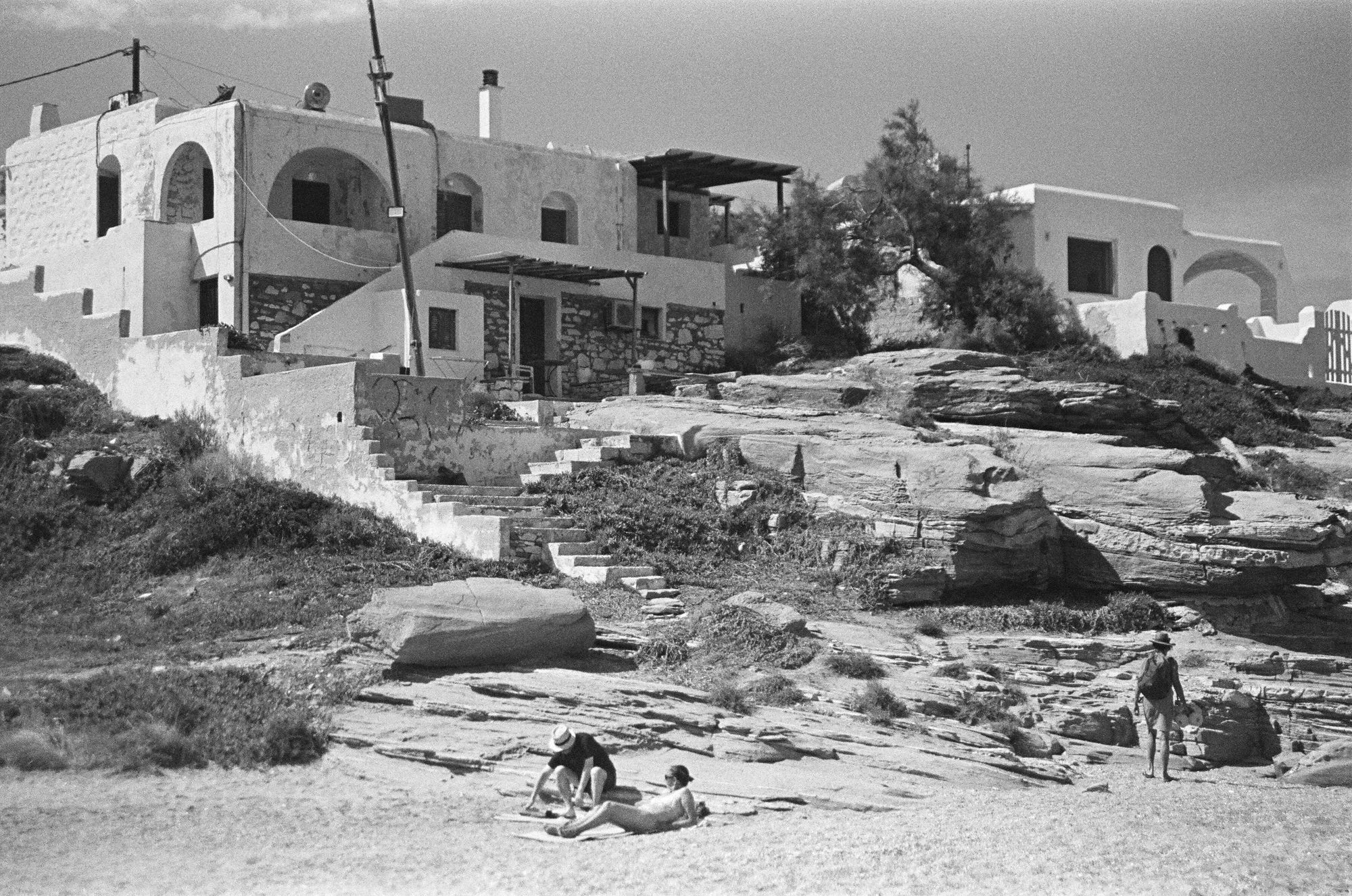
Emily was escorted into the same room, as there was evidently a second bed on the other side, thickly obscured by the steam. I wasn’t sure if we were allowed to talk, but it was good to have a buddy. We shared a handful of laughs until a distinct whacking noise indicated that the couple from the waiting room were on the other side of an opaque glass partition.
The whacking turned out to be the third stage of the affair when, after covering us with a foam of olive oil, they filled a kind of pillow case with air and beat us with it to condense the foam into soap, washing off all the grit and grime they’d exfoliated away. Sitting there during the massage, the steam had eventually cleared enough for me to look up at the stars on the ceiling and think about stories.
The place was dim enough to feel anonymous but bright enough to feel safe, thanks to a gazillion small lights dotting the ceiling like so many stars. As a man pulled on each of my fingers, I thought about the stories I would tell, and I wondered whether Odysseus, tied as he was to the mast of his ship, took solace in the same stars. We had a great time. Emily has always had a greater facility with Type II fun than I.
The Hammam and our fresh skin did mean we would have to take particular care in the sun in Paros. One day, we went out with Michael Zeppos Boat Tours. Michael Zeppos may have been the anonymous operator of the boat, but I like to believe he was the elder Greek man on the voyage, a Paros native who very much was not part of the crew. On this boat, I did not take good enough care of my fresh skin, and I spent the remainder of our time in Greece with an extraordinarily itchy back.
I left a piece of myself in Paros, and we both feared we’d feel incomplete once home. So, the last night in Athens, we reserved the Luxury Suite at a hostel, with the intent of mingling with some people at the rooftop bar and adding some more characters to our story. We had, however, filled up our dramatis personae with Yiannis our helpful Airbnb host, Yiannis our first helpful cab driver, Svetlana our chic Michael Zeppos crew member, Michael Zeppos himself, and Yiannis our second helpful cab driver.
The place was nice, except for the drain monster that woke us up in the middle of the night. Sounds like Andre the Giant using mouthwash in my eardrum emanated from the shower drain, leaving us exhausted as we puttered about on a sweltering first day of October.
Regrettably, I spent no small portion of the day looking forward to the dark cool of the plane. Once there, I reclined my seat without so much as an apology to the person behind me. I tried to sleep the exact right amount for a westward flight, and I looked up to find stars dotting the cabin ceiling. A nice touch by Emirates, who must have known we’d had our fill of stories and needed some way to navigate home.
